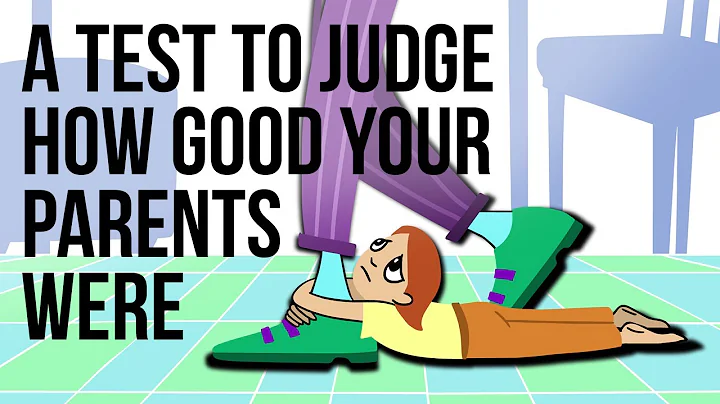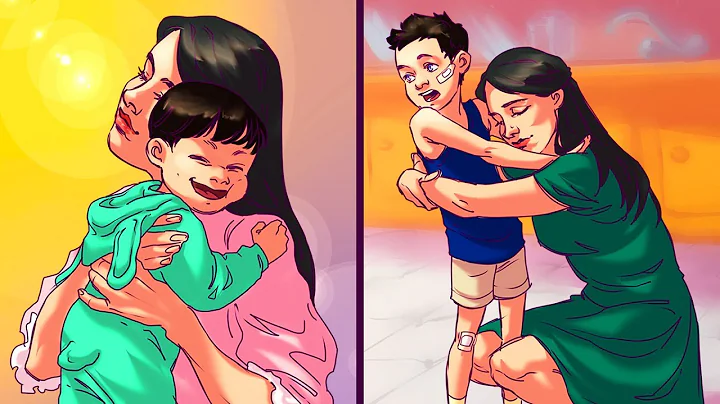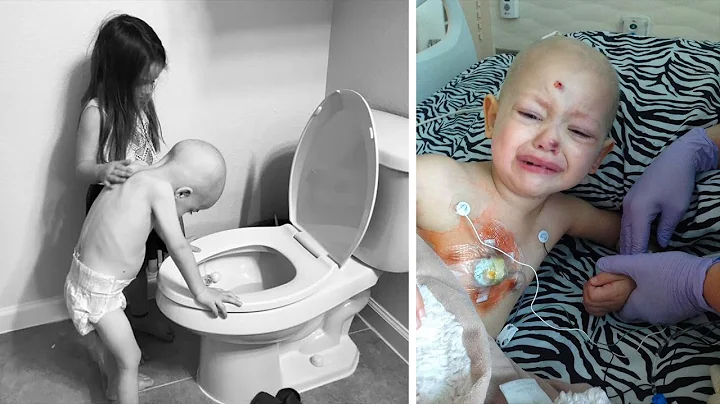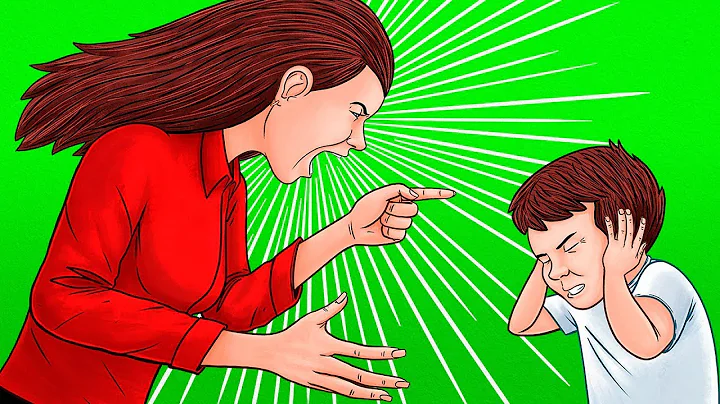The child is crying. Do you want to pick him up and comfort him? This is probably a question that many new parents struggle with. If you don't hug the child, you are afraid of destroying the child's sense of security and leaving a shadow on the child; always hug the child for comfort, but you are afraid of spoiling the child, causing them to get worse and cry and fuss when their needs are not met.
So, if the child cries, should you hold it up and comfort it? Does always responding positively spoil your child? Let’s talk about it in detail today.


Can children really be spoiled? Are you overthinking
Why do some people think that "holding a child when it cries will spoil the child"? They are often worried that children will find a cause-and-effect relationship between "crying" and "need satisfaction", and thus use the adults' softness to "blackmail" the adults to achieve their own goals.
At the same time, in their view, ignoring their children when they cry is equivalent to delaying the child's immediate gratification, which is conducive to training the child's ability to endure and delay gratification.
But in fact, this concept was popular in the United States in the last century and has long been abandoned.
Taking a closer look, using the excuses of "fear of spoiling" and "not being pampered" to ignore the nature of children's crying behavior, isn't it just laziness on the part of parents?
attempts to train infants and young children through stereotyped steps. In the short term, it seems to develop good habits, but in fact it completely violates the laws of children's development and ignores the legitimate expression of children's emotions during this period.
While ignoring the baby's cry, what is also ignored is the message that the child conveys to adults through crying.

If parents observe carefully, they will find that most children will not cry for no reason before they are 1 year old. At this time, their self-awareness has not yet been formed, and they only have the most basic physiological needs and the spiritual needs of their caregivers. .
In other words, htmlChildren before the age of 11 are obviously unable to "manipulate" adults through crying.
Crying is just one of the languages they use to communicate with adults. It basically conveys either cold, heat, hunger, fright, or environmental discomfort, but also flatulence, intestinal colic, diaper rash, etc. If parents hear the crying and ignore it and do not check it, it will be too late if an accident occurs.
Only when the brain generates more basic structures can children truly learn to infer cause and effect, their social and emotional abilities will also improve, and they will begin to have the "fake crying" that attracts parents' attention.


The more "used" it is, the more secure it will be
Now that we know that crying is an expression of instinctive needs for most babies before they are 1 year old, then for babies who are a few months old, the so-called "Habit" actually means responding to their instinctive needs in a timely manner. Naturally, there is no problem of "spoilt".
Even, in the eyes of psychologists, the more "accustomed" a baby is, the smarter it becomes.
The famous American psychologist Erikson once divided personality development into eight stages according to biological age. He believed that children in early infancy (0~1.5 years old) are lonely and weak, and are most dependent on adults. This stage Their core development mission is to solve the "psychological conflict of basic trust and distrust" .
To explain in vernacular, at this stage, parents should respond gently to their babies’ needs and help them build a sense of trust in the world.

Coincidentally, the famous British developmental psychologist Bowlby proposed the concept of "attachment". In his opinion:
An emotional connection will be established between the baby and the caregiver. Through this connection, the caregiver can transmit emotional information to the child, and the child can also use this information to establish a preliminary understanding of the external world.
If the caregiver can establish a secure attachment with the child through emotional connection, the child will realize that "the external world is safe and trustworthy", and it will subtly become an inseparable part of the psychological personality. When faced with challenges such as weaning, separate beds, and going to kindergarten, such children's separation anxiety will be less severe and their performance will be better.
As time goes by, they will become more confident and cheerful in the future, have strong emotional regulation ability and adaptability, and will be more likely to establish healthy friendships and stable interpersonal relationships.
Whether it is Erikson's eight-stage theory of personality development or Bowlby's attachment theory , they all paint a picture to us. For a newborn baby, everything in the world is unknown and in chaos. They begin to establish initial "connections."
If parents can give their children timely feedback and let them feel that they are safe and loved, it will not only make the children feel happy and reduce crying, but also build inner order.


Respond positively ≠ Dote and learn to identify the needs behind the crying
Of course, being sensitive to the needs of the child and establishing a secure attachment does not mean that we should dote on the child. First of all, we need to make it clear that first determines the need behind the crying.
· Physiological needs
For example, hunger, thirst, overcold/overheated, sleepy, uncomfortable urination and defecation due to diapers, unsuitable environment (noisy sound/dazzling light), intestinal colic, pathological reasons, etc. These are the most basic and common needs of babies.
If it is not satisfied, the baby will feel uncomfortable. Their most intuitive expression is to send a signal through crying - help me, I am not feeling well!

·Spiritual needs
As mentioned earlier, babies no matter how young they are, also have the spiritual need to be loved.
Sometimes, in this strange world, he feels scared and uneasy due to various factors and needs to vent his emotions;
Sometimes, he wants to attract the attention of others and ask them to hug him and interact with him;
Yes Sometimes, he just loses interest in the inherent space and toys. He will be happy again when his attention is attracted to other places; Physiological crying does not need to meet the child's needs, but it must not be stopped, scolded, or treated coldly. This will have a greater negative impact on the child's mental health.
On the contrary, comfort the child in a timely manner and let the child understand that although my parents reject my request, they love me very much and I am still safe and warm.
As for the child starting some tentative "fake crying" and "fake fussing" at a certain stage after the child is 1 year old (the development of each child is different, from 18 months to 2 years old at the latest), parents can slow down the response speed, but not He is completely "immune" to crying and has always ignored the child.
Reasonable requirements can be met, but which requirements cannot be met? For example, dangerous behavior, when it harms the interests of others/society, such as playing with fire, such as hitting others, or behavior that violates family rules, such as whether you can eat snacks, how long to watch cartoons, etc.
When a child is difficult to comfort and becomes so-called "unreasonable", we don't need to respond in a violent way, because when the child realizes that you care about his crying behavior, he will respond to you in a more violent way.
Many times, adults subjectively consider "unreasonable troubles", and they are mostly related to the adults' emotions and busyness. Behind children's "unreasonable troubles" may often be the need for parental love. When defining unreasonable troubles for children, you must think carefully about the child. For the reasons behind the emotions, it is recommended to remain calm and patient to calm the child's emotions.
When a child cries, it is a good choice to remain gentle and patient, recognize and appease the child's emotions, guide him to express his needs correctly, and then reason with the child after he calms down.
The proposition of "giving your child plenty of love while not spoiling him" is something I believe requires time for every parent, and even everyone involved in raising a child and establishing a close relationship with them, to seriously think about and explore. of.
There is no fixed formula for a child's growth, and the answer can only be found by learning more, spending more time with your baby, and constantly getting along with your baby.





















